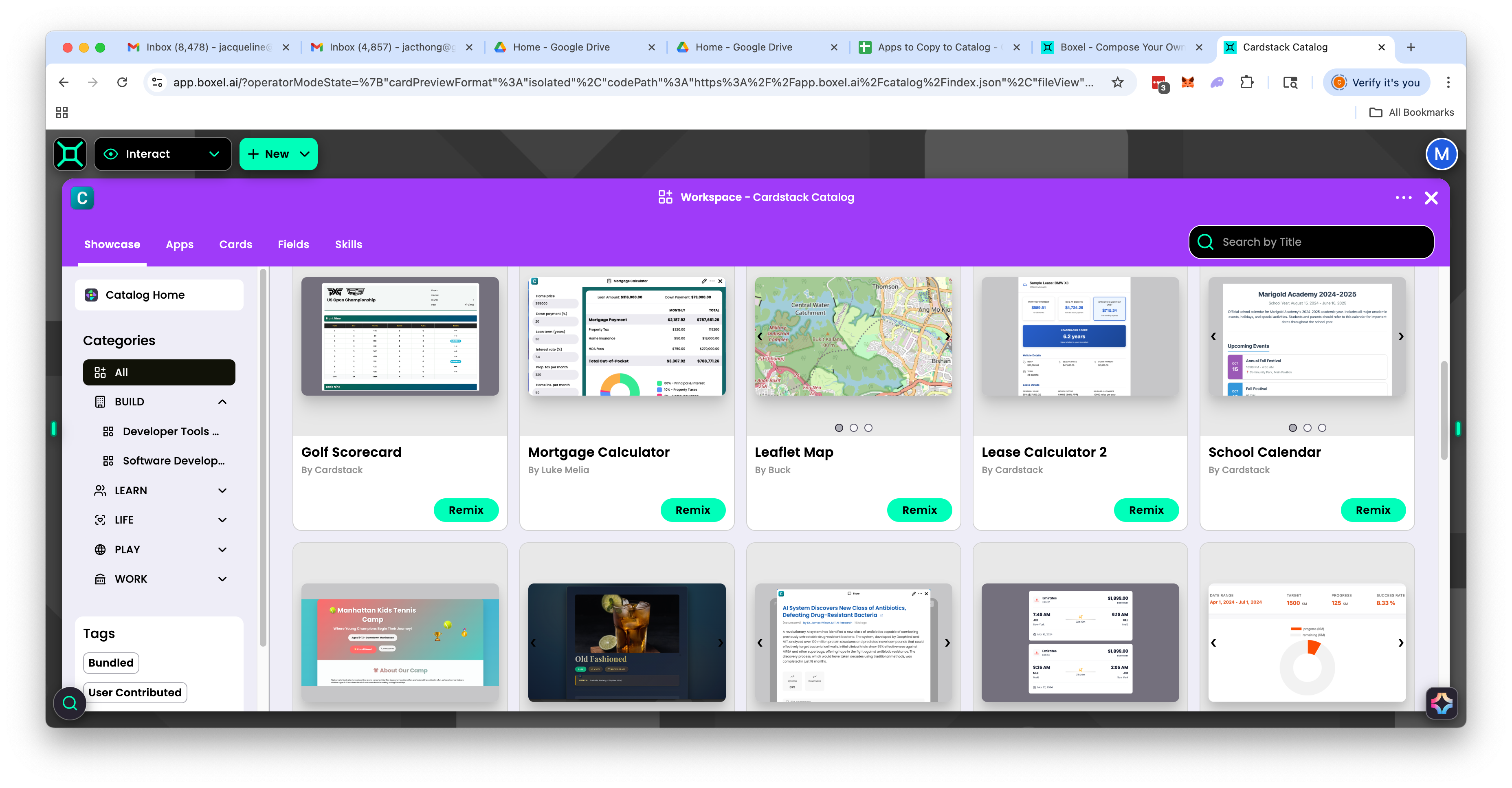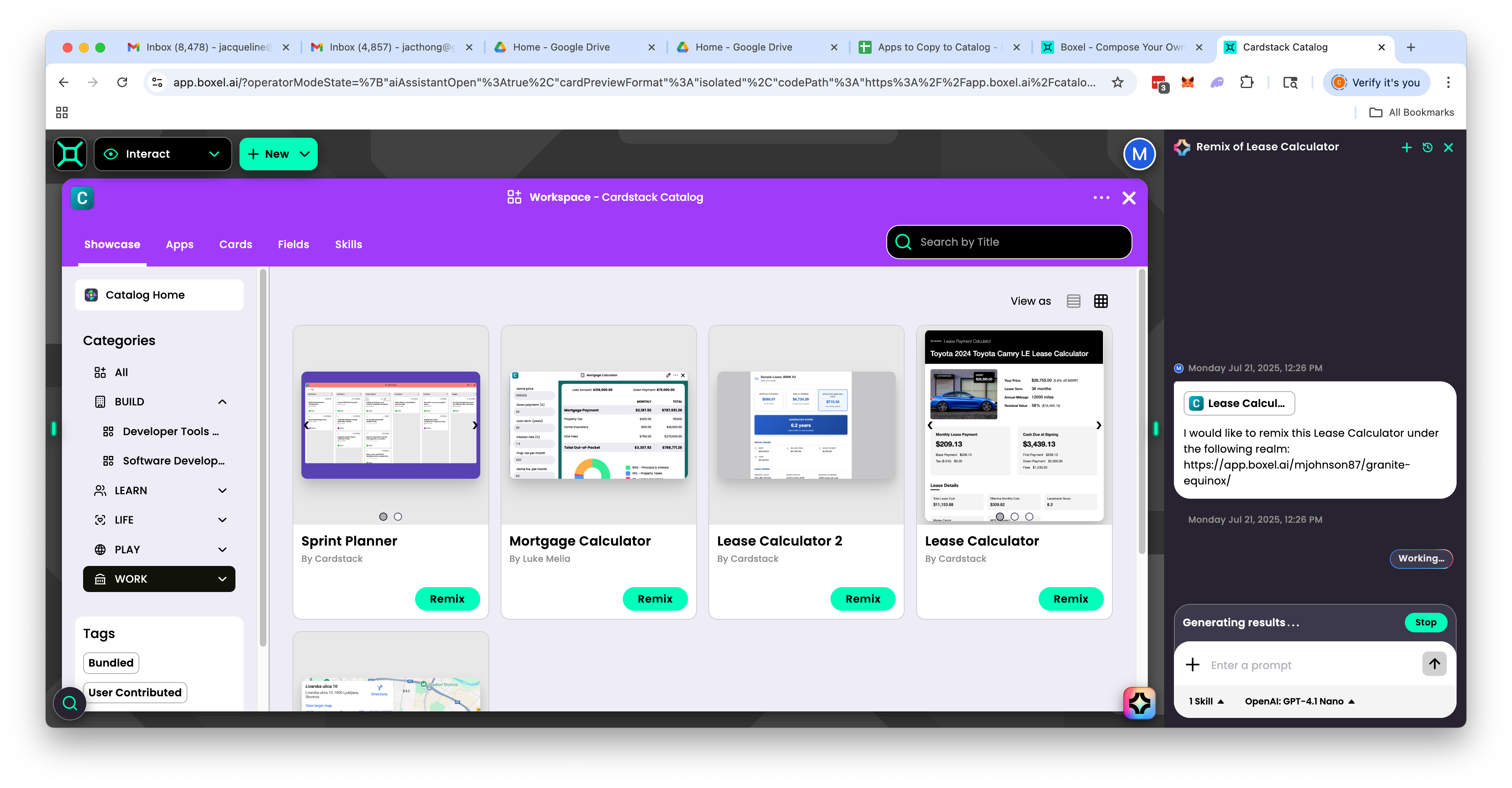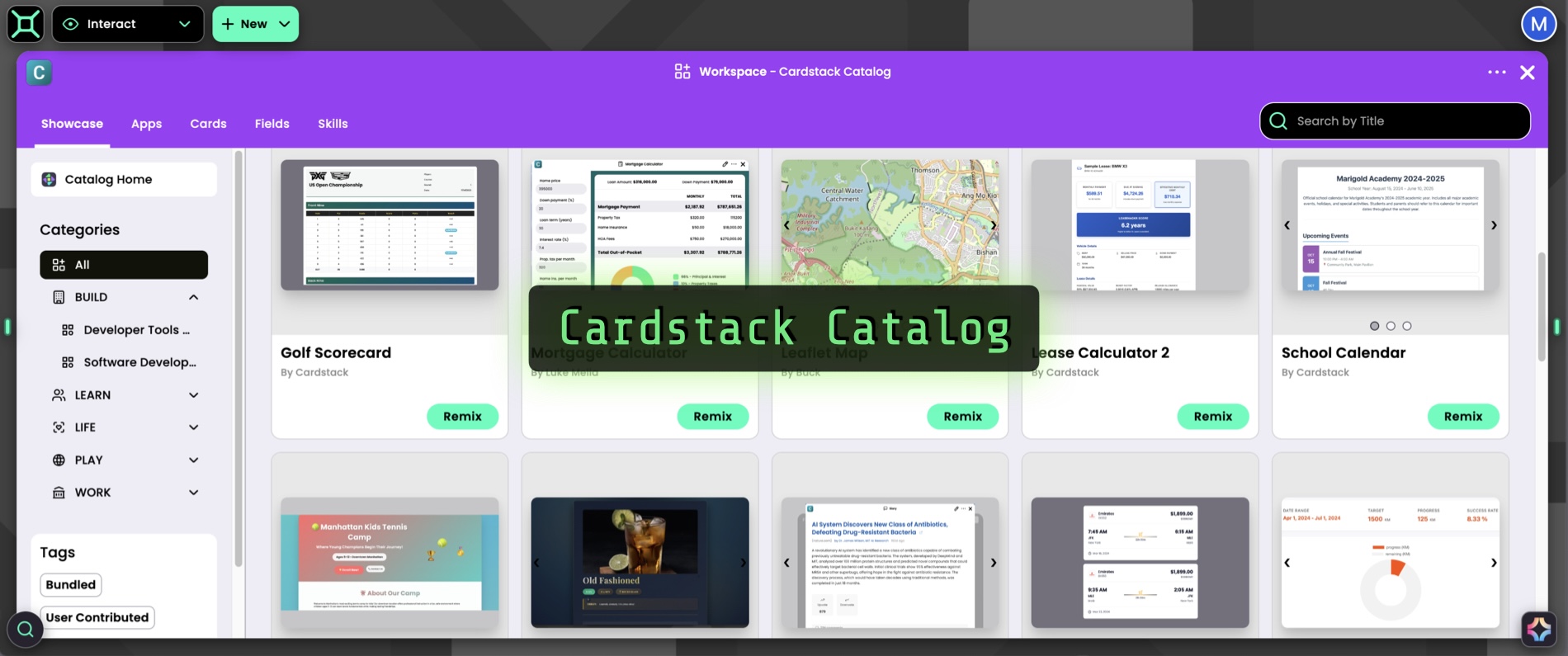Boxel’s approach to AI differs from other vibe‑coding platforms: we believe in modular reuse and end‑user composition. Instead of deploying every app on its own virtual machine, Boxel provides one unified environment where users can install many Boxel‑based applications (Cards and Fields) that work together cohesively. Beyond composability within a workspace, Boxel apps can be sourced from catalogs—read‑only workspaces. We are building an official catalog called the Cardstack Catalog that all Boxel users can access. It contains many examples our team created for you to inspect or remix.

Remixing means copying the source code of these pre‑built apps into your workspace; after copying, instruct the AI to change features, adjust the look and feel, or integrate your own data or code. We provide full source code for every card in the Cardstack Catalog so the AI can read all logic without depending on upstream cards.

For reusable fields such as date selectors or currency formatters, you don’t need to remix—use them directly, saving tokens since importing existing fields only takes a few lines of code. We will keep adding reusable widgets over time.
We also want users to share what they create. A submission workflow is planned so vibe coders can package their work into catalog listings, then submit those through an AI‑plus‑human review for quality and security. The submission format matches the current catalog‑listing card, so you can explore existing listings in Code Mode to learn the structure.
Currently, the catalog is free to use or remix. We plan to let users offer catalog items with an associated cost, priced in Boxel credits. When the AI remixes or reuses user‑submitted content, the consuming user will pay the listing publisher in credits instead of paying the LLM to generate from scratch. We expect this to be about ten times cheaper and faster, avoiding expensive frontier‑model generation. By encouraging users to share working code for specific industries, we reduce duplication. Boxel’s architecture also lets you extend a pre‑existing card with extra fields or templates, enabling customization while still using the shared catalog and ensuring submitters earn long‑term royalties. Those features are forthcoming.


